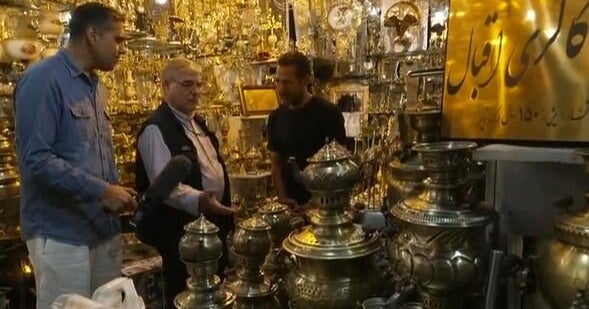
CBS News’ producer in Iran on seeing the war with Israel coming, Trump’s move, and an uncertain future
30. June 2025
Tehran — Seyed Rahim Bathaei has long been CBS News’ eyes and ears in Iran. For 16 years, he’s helped us introduce our audience to regular Iranians who’ve shared their hopes and fears.
For all of those years, Iranian society has been divided between those who ardently support the Islamic Republic’s theocratic rulers, and those who do not. Yet after 12 days of devastating war with Israel, CBS News has seen a level of national unity that wasn’t there before.
“Iran is an ancient country with an ancient civilization, more than 5,000 years of history. They want to preserve it,” Bathaei explains of his fellow Iranians. “They say: ‘We are the nation. We have a national identity. Don’t smash — don’t try even to smash — or don’t insult our pride and this deep civilization.'”
For Bathaei, the military clash between the Middle East’s archrivals had felt inevitable for some time.
“I was expecting this,” he says. “Iran has had this strong belief to support Palestinians and the Palestinian cause, and has not been shy to project it quite openly. So, it was obvious at some point — no one knew when — but this would come, that Iran and Israel would go on a direct war, direct confrontation instead of proxy wars. On Israel’s side, doing assassination, covert operations, and on the Iranian side, fighting against Israel through what is called nowadays Iran’s proxy groups. So, at some point, it was quite inevitable that both countries would have come to this boiling point.”
CBS News
Israel, backed by its close ally the U.S., may well have the military capacity to bring down the government led by Ayatollah Ali Khamenei. But Bathaei says such a move — which President Trump claims to have personally prevented during the 12 days of fighting — would have serious consequences beyond Iran’s borders.
“That would be a disaster. We have already seen what happened in Libya, what happened to Syria. Iraq, actually, is a big example for us. That’s a disaster for the region,” he says. “There will be a failed state that there might be terrorism coming out of.”
That threat may no longer feel imminent, and the ceasefire President Trump brokered between Iran and Israel has held for nearly a week, but Bathaei — relying entirely on gut feelings that come from more than 35 years as a journalist in Iran — still struggles to find optimism.
“I think we are going toward darker things,” he says. “I’m not a fortune teller, but my instinct tells me, yes, we are going toward darker things. But I strongly I hope I’m wrong.”
One thing did surprise Bathaei during the war with Israel: President Trump ordering U.S. warplanes to join in the bombing of Iran’s nuclear facilities.
“President Trump was full of surprises,” he says. “I was not thinking that he might have gone that far.”
“I don’t think the Iranian leadership were ready, or believed that the U.S. might attack Iran on that level,” adds Bathaei.
Now, he’s worried that the U.S. could attack Iran again.
The solution, Bathaei believes, is for both sides to sit down and talk it out.
“They’re not talking to each other. If they sit down and start a conversation or even visit each other — I mean, Iranian politicians go and visit the U.S., U.S. politicians coming here and visit Iran — I believe a big portion of this misunderstanding can be eliminated. I’m not saying Iran and the U.S. will go be a friend, be allies, in the near, foreseeable future, but I think it’s not something impossible.”
It is a desire for peace that has been echoed by many people CBS News has spoken with in Iran, and they all hope it is heard by the leaders in Tehran, Tel Aviv, and in Washington.
contributed to this report.
